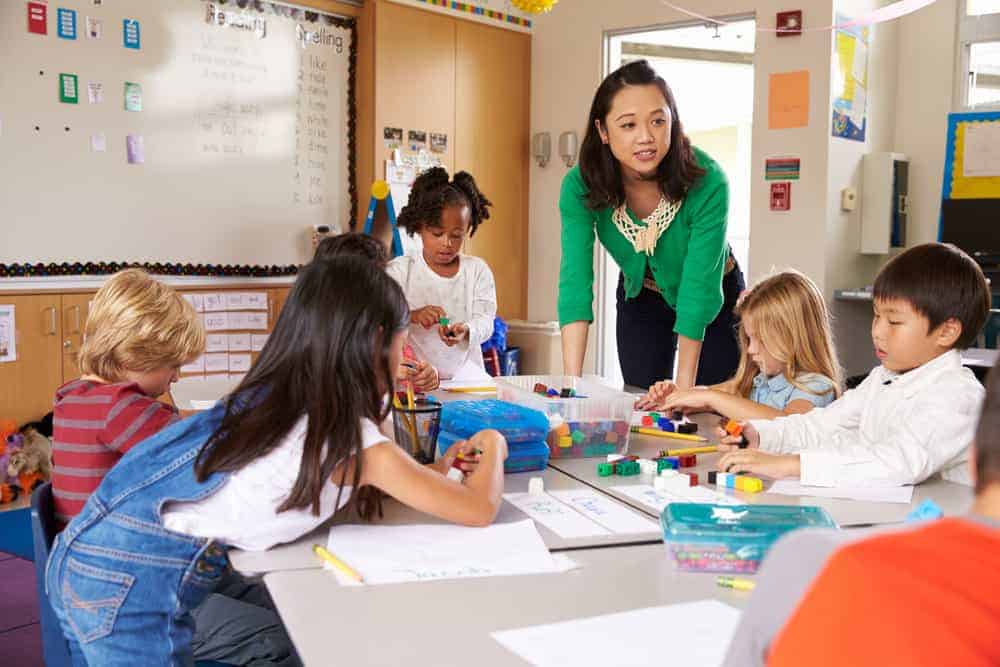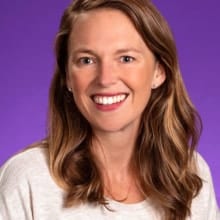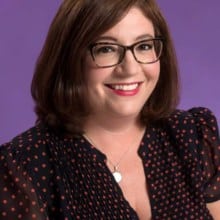There are multiple pathways that lead North Carolina professionals into the field of early education and care. As faculty members at East Carolina University in the birth-kindergarten education program, we often have the privilege of meeting and teaching future educators that have a diverse range of experiences and all share a passion for supporting the development of our youngest residents.
Interestingly, the largest student population that comes through our program is enrolled in distance education, made up of working professionals in the field. These students already hold a title of “teacher” in the eyes of the children and families that they work with on a daily basis — whether they have an associate degree in early childhood education, are adding on a teaching license to an existing degree, or are completing their Bachelor’s of Science in the Birth-Kindergarten education program.
Preparing working professionals for a field that they are already employed in takes careful consideration of the students’ unique strengths, barriers that they face, and intentional strategies of support to successfully complete their assignments and licensing requirements.
[ninja_form id=6]Strengths of nontraditional students
Nontraditional students are typically working-professionals in the field. They already hold a four-year degree in a child development related field and have jobs in pre-K classrooms that require that they obtain a North Carolina teaching license or they are employed as teacher assistants in a childcare center or public school and are enrolled in the program so that they can be a lead teacher in their school or district. These are the two largest groups of nontraditional students that enroll in the distance education program.
A nontraditional student that is in the classroom has a wealth of experience and knowledge. They understand how programs and schools work and the policies and procedures that their school requires of teachers. This is an asset that traditional (campus, degree-seeking students) don’t typically acquire until they start their internship in senior year. Nontraditional students have established professional relationships with their administrators and colleagues and feel comfortable asking questions. They also have relationships with families that a traditional student does not always have the access and time to establish. This deep knowledge of the school and children that they serve sets the stage for them to be able to plan rich and meaningful activities that are engaging.
Nontraditional students are typically comfortable and confident leading activities and lessons. Being immersed in the classroom daily means that these nontraditional students have more practice teaching and assessing children than our traditional student population. Because of their working relationship with other teachers at their school, they can observe instruction and practice teaching strategies throughout the day. Their daily interactions with children and curriculum allow them to recognize authentic, teachable moments and maximize interactions with children.
Last year was the first time that our institution was able to offer employed teacher assistants an internship assignment in their classroom due to new legislation. Most of the interns had been working with their assigned clinical teacher for more than a year. Because they had established personal relationships and had experience with classroom management and instruction, they were confident and eager to start teaching. Many of the clinical teachers and interns started co-teaching right from the beginning. This allowed for smaller groups for instruction and the lesson plans were highly individualized.
Barriers for nontraditional students and strategies for support
Because nontraditional students are working professionals, they are typically balancing multiple personal, professional, and academic responsibilities. They are persistent and focused on their goal, but it can impact how they prioritize their coursework and the amount of attention that they are able to put into assignments.
Last year, an intern who was also employed as a teacher’s assistant at a NC Pre-K classroom was completing her final observation with her university supervisor. They were discussing her growth and how hard she had worked over the semester. Her clinical teacher provided insight to the university supervisor regarding responsibilities that she had as a working TA and as an intern. Every day, she would drive a bus, prepare classroom materials, work on planning and assessment, lead teach, and then go home to work on her course work and assignments for the university. When she got home, she still had to wear the hat of “wife” and “mother.” Her TA responsibilities didn’t stop just because she was starting her lead teaching in her internship.
Expectations of academia are not always aligned to practices of the working professional. This is evident when it comes to writing lesson plans for courses. Teachers in the field write lesson plans that are typically brief overviews aligned to curriculum and focused on specific skill development. Rarely do they write more than a paragraph because they have had enough practice teaching and interacting with the children and they are comfortable with the curriculum.
However, in coursework, students are asked to write detailed, multiple-page lesson plans that think through the planning of the lesson from start to finish including content considerations, instructional strategies, feedback to children, and assessment of learning. Although this level of detail is important to helping them develop intentional teaching practices, they do not often recognize the value of such detailed work immediately. It’s important that faculty explain the rationale behind assignments so that they can make connections to their professional growth. If they see the work as valuable, then they will not only do better on the assignment, but they will apply that learning to their classroom immediately.
Planning for diverse practicum and internship experiences for working professionals is challenging. Taking leave from work for a practicum (about 15 hours) for two classes a semester can cause scheduling and financial conflict. Faculty want to ensure that at the end of the program, students have diverse experiences with diverse populations, so that they will be prepared licensed teachers. But we must use common sense and compromise when we place our students for field experiences. This requires thoughtful, coordinated faculty communication to make sure that students can use their current classroom or school if it aligns to the practicum requirements of the course. Making these types of accommodations for working students makes it easier for them to complete and schedule practicums for courses that their classroom does not meet the requirements. It is rewarding for both the student and the faculty member when new content is being immediately applied in the classroom and the student shares what an impact this new content has made in their teaching.
Establishing policy and practices that make it easier for nontraditional students to obtain their North Carolina teaching license will have an immediate impact on the quality and professionalism of early childhood education. Administrators and colleagues will see effective classroom management and student engagement coming from a co-teaching team rather than a teacher and a teacher assistant. As faculty, incorporating perspectives of teacher and professionals that are working in the field keeps our discussion rich and our assignments meaningful. But even better, when we make education accessible to working professionals, North Carolina’s economy reaps the benefits of a skilled and professional workforce.
Recommended reading



